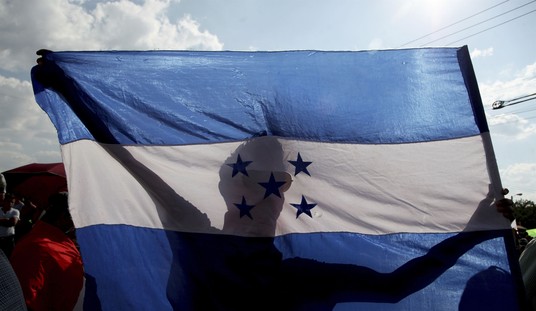On Sunday, Chancellor Angela Merkel’s Christian Democratic Union (CDU) suffered a major setback in elections in North-Rhine Westphalia, Germany’s most populous state. The CDU still managed to win a plurality of the vote. But its share fell to 34.6% as compared to 44.8% in 2005, the last time state elections were held in North-Rhine Westphalia.
Following the announcement of the election results, it almost instantaneously became the consensus view in the English-speaking media that the CDU’s losses were a result of the Merkel government’s decision to spend German tax dollars on an EU bailout package for Greece. The New York Times, for instance, led its report on the vote with the observation that the results are “seen as the first significant political fallout from the Greek crisis.” It did not say by whom.
A closer look at the electoral results, however, shows that if voters from North-Rhine Westphalia went to the polls to protest against the Greek bailout, then they lodged their protest in a decidedly irrational form. For the most significant gains in Sunday’s election were clearly made by the Green Party. The Greens increased their share of the vote by 5.9%, thus nearly doubling their score from 2005. The Greens, however, supported the Greek bailout.
Indeed, prior to a parliamentary vote on the bailout package in the German Bundestag on Friday, Green parliamentary leader Renate Künast took the floor in order to energetically defend the bailout legislation. “It’s a matter of defending Europe against rip-offs and against speculation,” Künast said. … “At the end of the day, the proper course for us is a clear, green, European course.” And then, with a nod to the representatives of the “post-communist” Left Party, she cried: “Let me put it in your words: Long live international solidarity!”
On the other hand, the other major party to make significant gains in Sunday’s election was precisely the Left Party, and the Left Party voted against the bailout package. The Left Party is the product of a fusion of the eastern German Party of Democratic Socialism (PDS) and the western German Labor and Social Justice Alternative party (WASG). The two parties participated as still separate entities in the 2005 election, and they together pulled 3.1% of the vote. The Left Party increased this score by 2.5%, thus clearing the 5% bar for obtaining seats in the state parliament.
But the Social Democratic party (SPD), which likewise refused to endorse the bailout package, saw its share of the vote decrease by 2.6%. The SPD score fell from 37.1% to 34.5%. The Social Democrats abstained in the parliamentary vote on the bailout package. This is to say that the combined score of the two parties represented in the German Bundestag that refused to endorse the Greek bailout remained essentially unchanged from 2005. Indeed, it declined ever so slightly. The Social Democrats can be presumed to have lost votes to the Left Party.
The — by German standards — economically liberal Free Democratic Party (FDP) is the coalition partner of Chancellor Merkel’s Christian Democrats in the federal government, and the FDP has also been part of the currently ruling CDU-FDP coalition in North Rhine-Westphalia. The FDP increased its share of the vote by 0.5% as compared to 2005.
The Christian Democrats can be presumed to have lost votes both to the Greens and to the Free Democrats, as well as to “none of the above.” Overall voter participation fell from 63% in the 2005 NRW elections to 59.3% on Sunday.
The major parties also lost votes to new and minor parties. Some 6.5% of the vote went to parties other than those aforementioned. The comparable figure was only 2.6% in 2005. The scores of two new parties are particularly notable. The so-called Pirate party drew 1.5% of the vote and the “citizens’ movement” [Bürgerbewegung] Pro-NRW drew 1.4%. Both of the latter, however, are widely perceived as single issue parties. The “Pirates” focus on digital age privacy concerns. Pro-NRW is the statewide version of the better known Pro-Cologne. Whereas Pro-NRW campaigned against the Greek bailout, it owes its notoriety almost entirely to Pro-Cologne’s “anti-Islamification” activism.
In short, contrary to the “instant” narrative offered up by the traditional English-language media, the Greek bailout appears to have had little influence on the outcome of the North-Rhine Westphalia vote. At most, it may have inspired some hitherto CDU voters to stay at home and perhaps drove some others into the ranks of fringe parties.
German commentators have invoked a myriad of factors that could explain the CDU’s losses in North Rhine-Westphalia. In the run up to the election, accusations of corruption against the current governor of the state, Jürgen Rüttgers, played an especially prominent role.









Join the conversation as a VIP Member